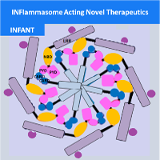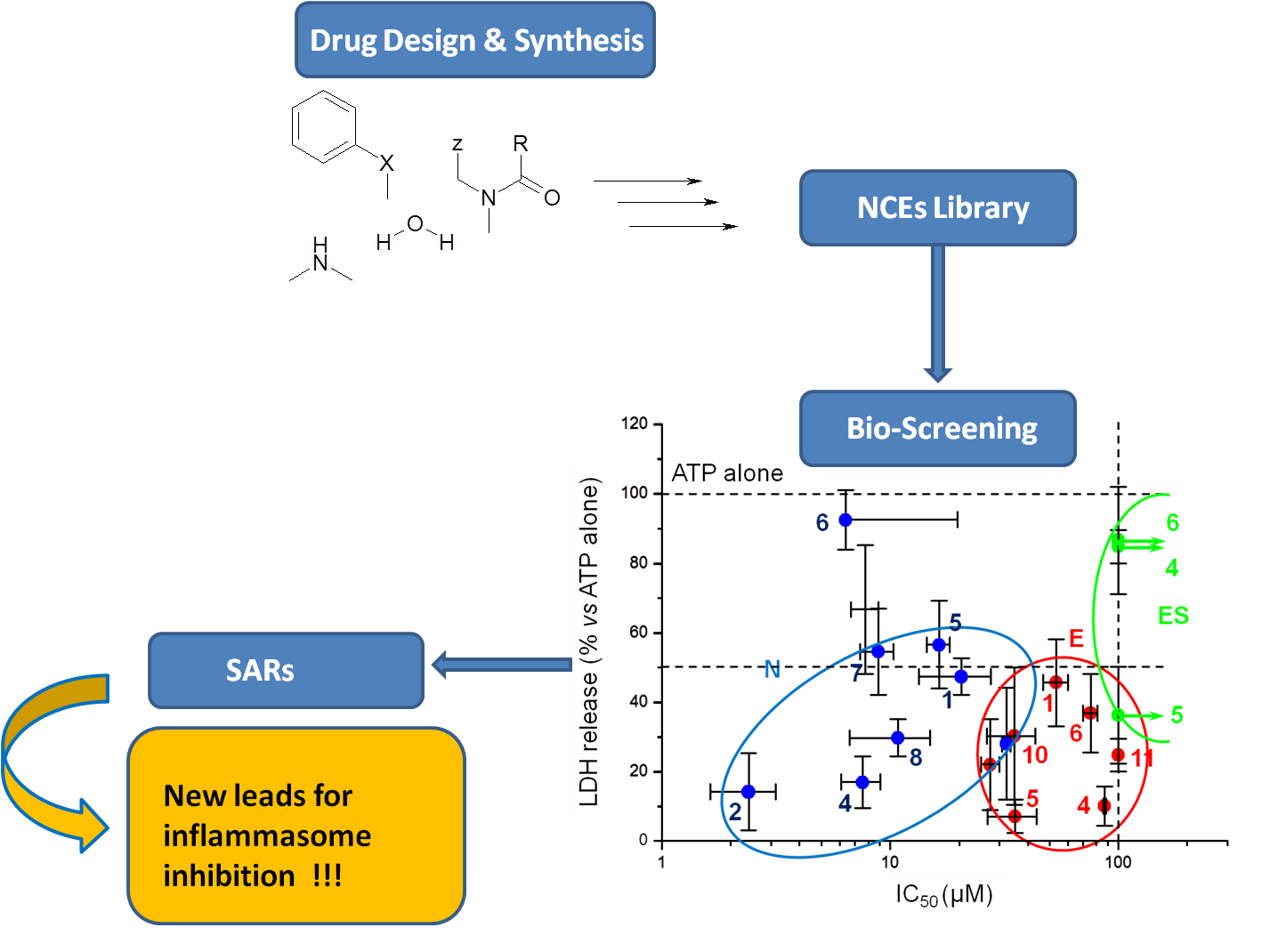INFlammasome-Acting Novel Therapeutics (INFANT)
Clara Cena
Aree / Gruppi di ricerca
Partecipanti al progetto
- Bertinaria Massimo (Docente)
- Cena Clara (Docente)
- Giorgis Marta (Ricercatore/trice)
- Marini Elisabetta (Ricercatore/trice)
- Stevanato Livio (Tecnico/a)
Descrizione del progetto

Partners:
Department of Medical Sciences, University of Torino
Sponsors:
University of Turin
Description
Design, synthesis and biological evaluation of new chemical entities modulating NLRP3 inflammasome activity and related inflammatory pathways.
The inflammasomes have recently emerged as key mediators of inflammation and immunity. Four inflammasome complexes have been described to date. The most intensely studied is the NLRP3 inflammasome formed by the NLR (nucleotide-binding domain leucine-rich repeat) family member NLRP3 and the adapter protein ASC, its assembling is triggered by a diverse series of endogenous and exogenous stimuli.
NLRP3 assembly leads to caspase-1 activation which, in turn, causes the maturation and secretion of the pro-inflammatory cytokine IL-1β and IL-18 (figure 1). The onset of chronic inflammation due to NLRP3 inflammasome overactivation has been recently linked to a wide range of metabolic disorders such as type 2 diabetes, atherosclerosis, intestinal inflammation leading to colorectal cancer, inflammatory bowel disease, liver injury and Alzheimer’s disease. A series of autosomal and dominant or de novo mutation of NLRP3 lead to auto-inflammatory syndromes known as CAPS (cryopyrin–associated periodic syndromes) which are characterized by high levels of IL-1β release and associated sterile systemic inflammation.
Nowadays clinical application of this knowledge has been limited by a lack of selective drug-like inhibitors of the NLRP3 inflammasome-related pathways. At the present the therapeutic approaches are based on the use of recombinant IL-1 receptor antagonists (Anakinra), anti-IL1 monoclonal antibody (Canakinumab) or IL-1 trapping agents (Rilonacept). Few small molecules acting upstream or downstream of NLRP3 activation or directly on the NLRP3 assembly have been reported to date. The aim of this project is to identify, synthesise and develop new chemical entities able to inhibit inflammasome assembly and/or activation. Preliminary biological activity screening is performed in collaboration with the pharmacology unit in the same department in order to obtain rapid results and consequently drive lead compounds optimization.
Discovery of new molecules able to modulate inflammasome-related pathways could open a new way to treat autoinflammatory and autoimmune diseases.

Keywords:
Inflammasome, CAPS, NOD-like Receptors, NLR, NLRP3, Autoimmune diseases, Autoinflammatory diseases




